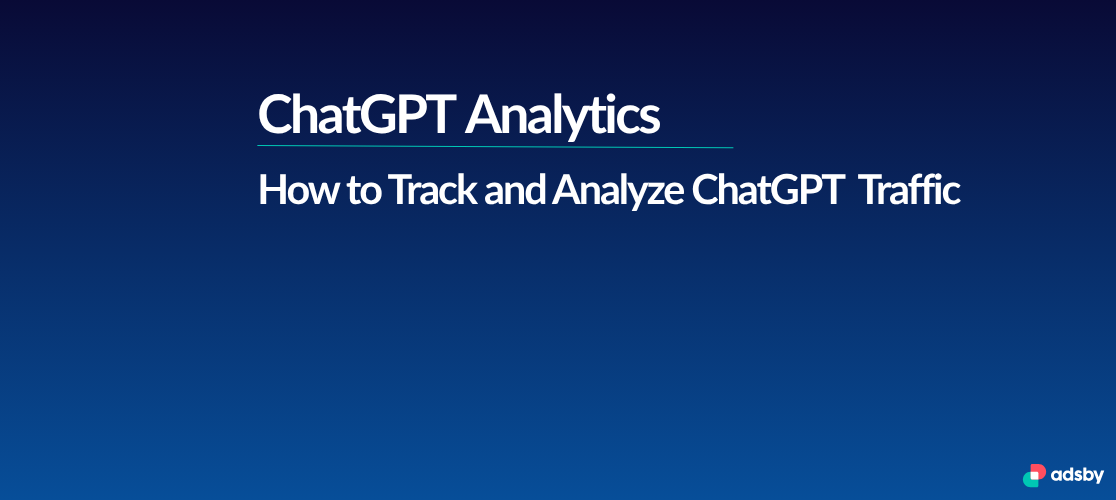
Remember when Google Analytics first launched back in 2005? Suddenly, we could see exactly where our website visitors were coming from, what they were searching for, and how they behaved on our sites. It revolutionized digital marketing overnight.
Fast forward to 2024, and we’re facing a similar moment with AI-driven traffic – except this time, we’re flying blind.
If you’ve been watching your analytics lately, you’ve probably noticed something interesting: there’s this mysterious traffic source labeled as referral from various AI platforms, with ChatGPT leading the pack. But here’s the frustrating part – we know almost nothing about it beyond the fact that it exists.
The Current State of AI Traffic Tracking: We’re All Guessing
Let’s be honest about where we stand right now. Google Analytics shows us that traffic is coming from ChatGPT and other AI platforms, but that’s about where the insights end. We see it grouped under referrals, sometimes social, but the level of detail we’re used to with traditional search traffic? It’s simply not there.
Several third-party tools have started rolling out AI traffic tracking features, and while they’re helpful, they’re essentially making educated guesses. They can tell us that someone probably came from an AI interaction, but the specifics the actual queries, the context, the user intent – remain largely mysterious.
This isn’t anyone’s fault, really. We’re in uncharted territory, and the tools we need simply don’t exist yet.
The Big Questions Every Smart Marketer is Asking
Here’s what keeps me up at night (and probably you too, if you’re in digital marketing):
Which ChatGPT channel actually drove the traffic? Was it from a regular ChatGPT conversation, ChatGPT Search, or ChatGPT Shopping? Each of these represents completely different user intents and should be analyzed differently, but right now, they’re all lumped together.
What specific query or conversation led to the website mention? With Google Search Console, we know someone searched for “best project management tools” before clicking through to our site. With ChatGPT traffic, we’re completely in the dark about what prompted the AI to recommend our site.
How did the user phrase their question? This is crucial for understanding search intent and optimizing our content accordingly. Natural language queries to AI are very different from traditional keyword searches.
What context surrounded the recommendation? Was our site mentioned alongside competitors? Was it the primary recommendation or just one of many options?
These aren’t just nice-to-have insights, they’re becoming essential for understanding our audience and optimizing our digital strategies.
Breaking Down ChatGPT Traffic Sources: Why It Matters
The reality is that “ChatGPT traffic” isn’t one thing, it’s several distinct channels with different behaviors:
- ChatGPT Chat traffic typically comes from conversational interactions where users are asking questions and receiving recommendations. These visitors often have high intent but may be in earlier stages of the research process.
- ChatGPT Search traffic represents users who are specifically looking for information or solutions. This traffic often behaves more like traditional search traffic and may have higher conversion potential.
- ChatGPT Shopping traffic indicates users who are actively in buying mode, researching products or services. These visitors are likely closer to making purchase decisions.
The problem? We can’t distinguish between these sources right now, which means we’re treating all AI traffic the same way and that’s a mistake.
Why We Need ChatGPT Analytics: The Missing Piece of the Puzzle
Here’s where I’m going to make a prediction that I’m pretty confident about: OpenAI will launch an official ChatGPT Analytics platform, and it’s going to happen sooner than most people think.
Think about it every major platform that drives significant traffic eventually provides analytics tools. Google gave us Search Console and Analytics. Social platforms provide insights for businesses. It’s a natural evolution, and the demand is clearly there.
ChatGPT Analytics (yes, I’m coining this term) will likely provide:
- Detailed breakdowns of which ChatGPT services drove traffic
- Query insights showing what questions led to website mentions
- Context around recommendations (competitive landscape, positioning)
- User behavior patterns specific to AI-driven traffic
- Conversion tracking for AI-originated visits
But that’s not all. Just as Google gave us both Analytics and Search Console, we’ll also need a ChatGPT Search Console equivalent. This would be the webmaster-focused tool that shows:
- How often your website appears in ChatGPT responses
- Which topics and queries trigger your site’s mentions
- Your site’s “AI visibility” compared to competitors
- Optimization suggestions for better AI recommendations
- Indexing status and crawl insights for AI training data
The businesses that prepare for this shift now will have a significant advantage over those who wait and react later.
The Bottom Line: Get Ready for the AI Analytics Revolution
The truth is, we’re all figuring this out together. AI-driven traffic represents a fundamental shift in how people discover and interact with content online, and we’re only at the beginning of understanding its implications.
What I do know is this: the companies that take AI traffic seriously now, even with limited tools, will be the ones best positioned to capitalize on the detailed analytics that are surely coming.
The analytics revolution happened once with search engines. It’s happening again with AI platforms. The question isn’t whether you’ll need to understand ChatGPT Analytics, it’s whether you’ll be ready when it arrives.